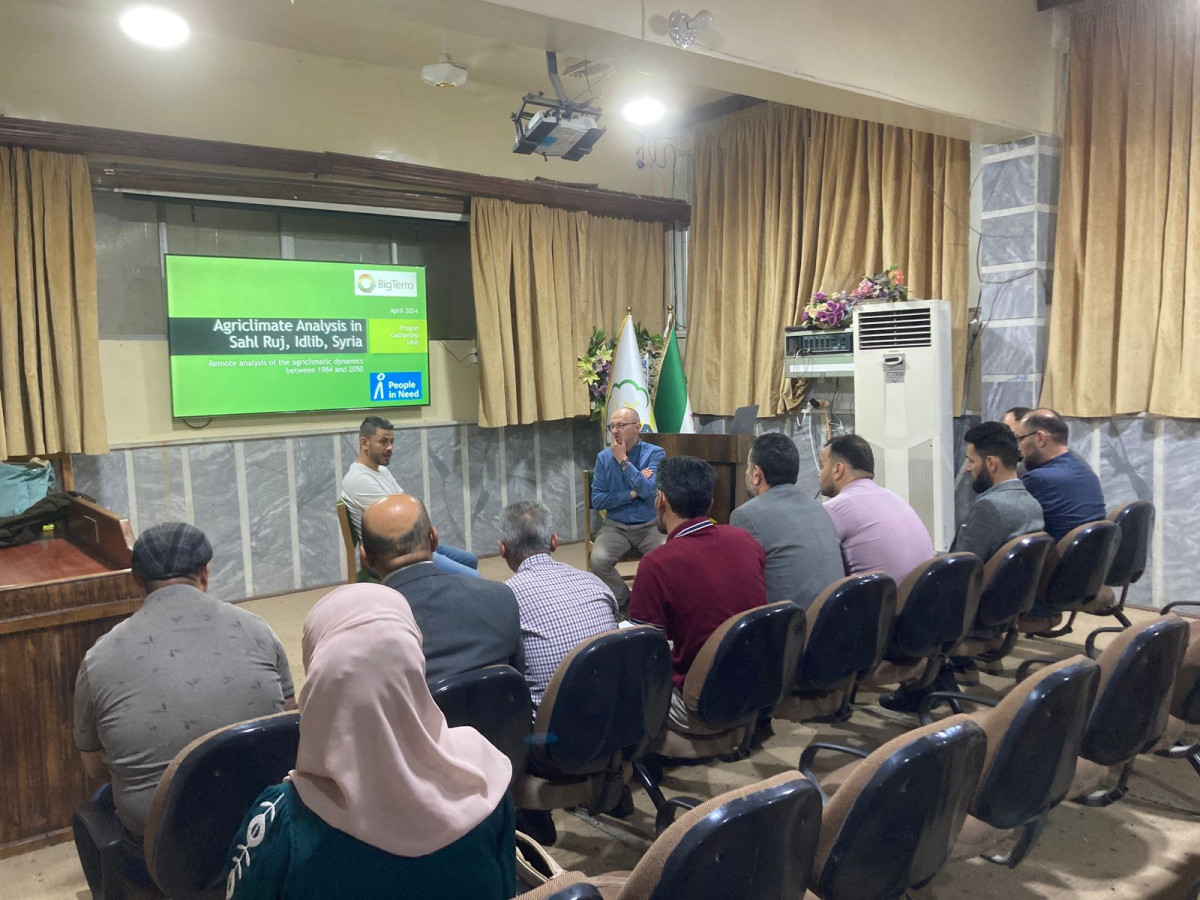Climate Predictions for North West Syria's Breadbasket
Published: Jul 12, 2024 Reading time: 1 minute Share: Share an articleThe Sahl Al-Ruj Plain is vital to Northwest Syria's food security, which simultaneously experiences a high number and concentration of Internally Displaced Persons (IDPs) with limited access to agricultural production or land. The plains' original ecosystem, riverine marshlands, was historically affected by the large-scale betterment "Al Ghab" project in the 1950s and 60s. Intensive cropping after massive irrigation investments in the 1990s further impacted the area. The climate impacts were exacerbated by deforestation, conflict-driven excessive use of natural resources, and greywater pollution.

To assess the area's vulnerability to climate change, in March 2024, the People in Need and Big Terra teams analysed the agroclimatic trends in Northern Sahl Al-Ruj from 1979 to 2050.
The remote sensing data analysis of the trend between 1979 and 2023 showed:
- • A steady rise in the maximum weekly temperatures from 27°C to over 29°C, surpassing 30°C six times in the last 13 years, compared to only once in the previous two decades.
- • Evaporation increased by 10% over the last 40 years.
- • Extreme and interseason differences have increased over the last two decades.
Projections until 2050 suggest a further 1°C temperature rise with increasingly frequent seasons averaging monthly temperatures over 30°C. The area is likely to steadily deteriorate from dry spells and evaporation, suggesting the agroecosystem is in dire need of improved irrigation and more stable ecosystem management. Nature-based solutions (NBS) and agroforestry are primarily needed to manage the microclimate dynamics and address the local community's food security, livelihoods, and environmental needs. The results were presented to specialists at Idlib University in May.



